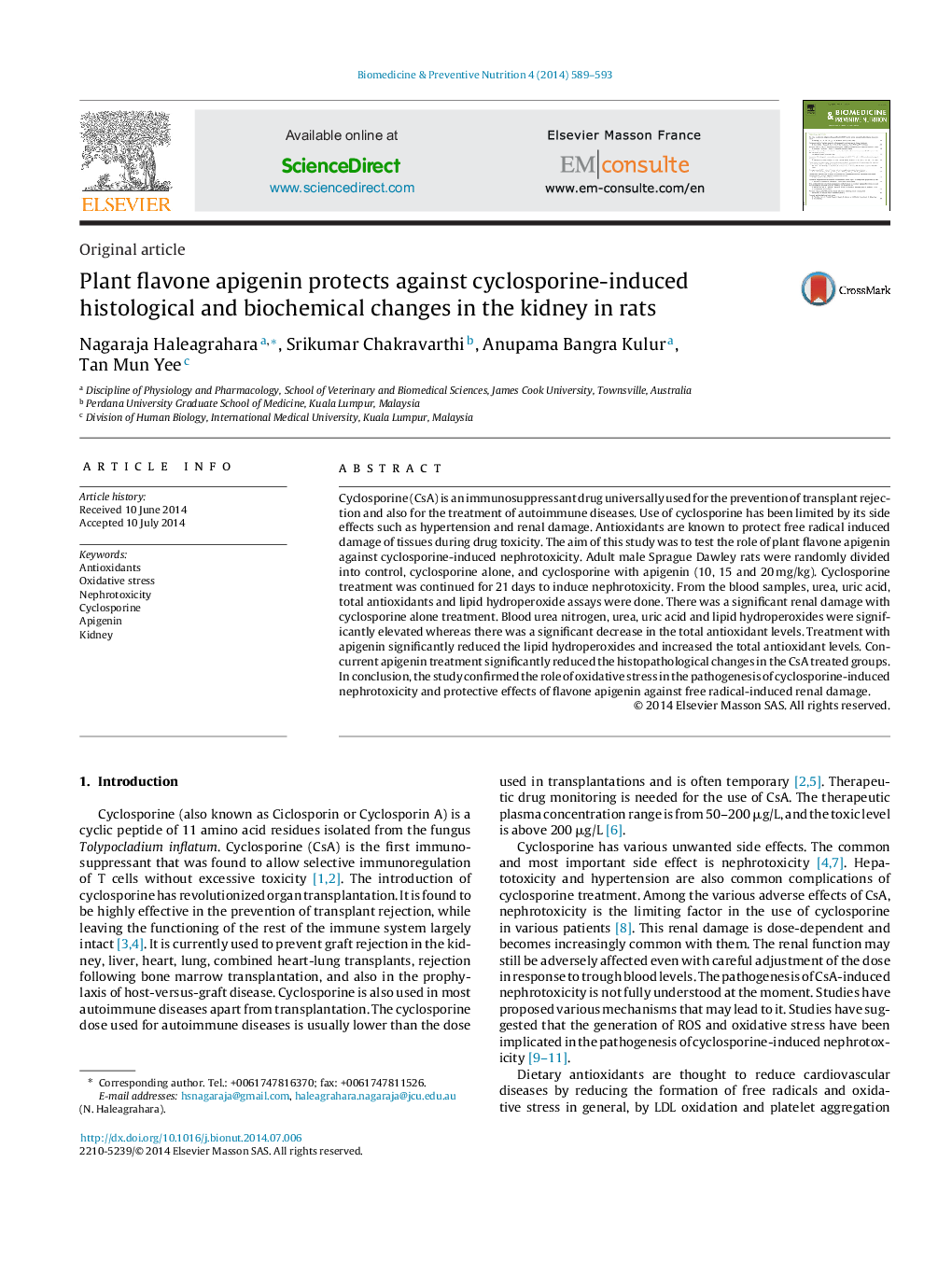| Article ID | Journal | Published Year | Pages | File Type |
|---|---|---|---|---|
| 2689080 | Biomedicine & Preventive Nutrition | 2014 | 5 Pages |
Cyclosporine (CsA) is an immunosuppressant drug universally used for the prevention of transplant rejection and also for the treatment of autoimmune diseases. Use of cyclosporine has been limited by its side effects such as hypertension and renal damage. Antioxidants are known to protect free radical induced damage of tissues during drug toxicity. The aim of this study was to test the role of plant flavone apigenin against cyclosporine-induced nephrotoxicity. Adult male Sprague Dawley rats were randomly divided into control, cyclosporine alone, and cyclosporine with apigenin (10, 15 and 20 mg/kg). Cyclosporine treatment was continued for 21 days to induce nephrotoxicity. From the blood samples, urea, uric acid, total antioxidants and lipid hydroperoxide assays were done. There was a significant renal damage with cyclosporine alone treatment. Blood urea nitrogen, urea, uric acid and lipid hydroperoxides were significantly elevated whereas there was a significant decrease in the total antioxidant levels. Treatment with apigenin significantly reduced the lipid hydroperoxides and increased the total antioxidant levels. Concurrent apigenin treatment significantly reduced the histopathological changes in the CsA treated groups. In conclusion, the study confirmed the role of oxidative stress in the pathogenesis of cyclosporine-induced nephrotoxicity and protective effects of flavone apigenin against free radical-induced renal damage.
